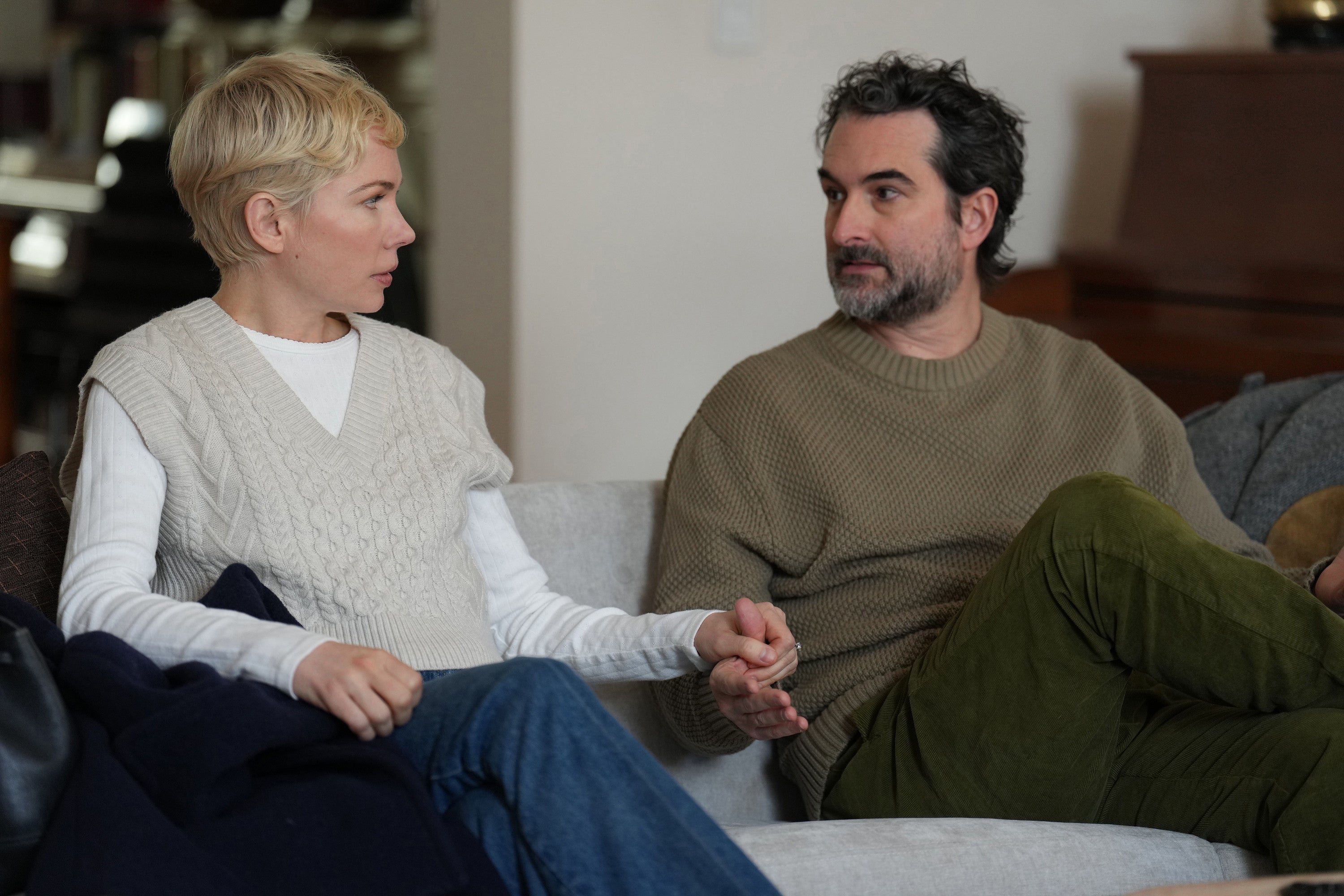TV series adapted from podcasts are in search of one thing: intimacy. It is what the audio format thrives on. A familiarity with the voices whispering in your ear that makes you feel like you are amongst friends or with family. Dying for Sex was just such a podcast: the story, told through its host Nikki Boyer, of her friend Molly Kochan and the existential journey she took after a terminal diagnosis. Now the podcast gets sexed up for the small screen, with Michelle Williams taking the lead role in a charming, warm Disney+ adaptation.
Molly’s cancer is back. Back, and incurable. “If you’re dying,” her best friend Nikki (Jenny Slate) asks her as she reels from the diagnosis, “why are you weirdly vibing right now?” If the cancer has turned Molly’s life on its head, her subsequent decisions have her spinning like a 90s breakdancer. She leaves her irritating husband Steve (Jay Duplass), putting her care in the hands of Nikki, who she describes as “a beautiful flake”. Then Molly embarks on a “sex quest”, a voyage through New York City’s eligible (and ineligible) men in pursuit of something she has never experienced: a partnered orgasm.
Created by Elizabeth Meriwether, the writer behind New Girl, one of the best sitcoms of the 21st century, and Kim Rosenstock, Dying for Sex could easily have been a knockabout raunchfest. The Bucket List with dildos and riding crops and cock cages. But Meriwether keeps her taste for zany oddballs largely in check here. Molly is thoughtful, curious but, ultimately, played rather straight (Williams has one of the great faces, but is not a natural comic actor). Nikki is a conduit for a more chaotic energy, but even she is played closer to the timbre of Lena Dunham’s Girls (in which Slate made a fleeting appearance) than the overblown mania of New Girl’s breakout character, memeable fuss-pot Schmidt. This is a project in a lilting minor key, where the comedy plays second fiddle to notes of melancholy.
Which isn’t to say that Dying for Sex is a weepie either. The necessity for a box of Kleenex is split quite evenly between the two parts of its title. “There’s a whole world out there,” Molly’s palliative care nurse Sonya (Esco Jouléy) tells her. “If you want it.” And so rather than focus on the gruelling regimen of chemo and radiation, Molly’s story is told largely through a picaresque series of sexual encounters, which often culminate in stolen moments – sometimes involving sexually degrading commentary; sometimes involving tenderly eating snacks – with her vaguely disgusting unnamed neighbour (Rob Delaney). There’s the man who wants to be humiliated for having a small penis (the twist: it’s big) or the 25-year-old desperate for her to “clasp” his balls. Her journey into kink is rendered vividly but palatably: even her human pet, who she pees on, is rather handsome. More Kennel Club than dive bar.

With its interest in fetish, Dying for Sex is, in a way, more explicit than many TV shows that have dealt directly with sex in the past. And yet it has a softness that might blunt its edge for some viewers. The comedy, too, is a gentle thing, more often dictated by the situations in which Molly finds herself (such as Steve’s arrival at her chemo session with his new girlfriend) than big set-piece yucks (though I did laugh out loud at a joke about Bill de Blasio). It feels like there is an emerging model for American limited series – like Painkiller or The Shrink Next Door – which straddle a line between comedy and drama without fully committing to either. The 30-minute format of Dying for Sex makes it feel like it’s in classical sitcom territory, yet it is played with a deep attention to Molly’s interiority (she simultaneously narrates the action) and focused on issues, like childhood trauma and mortality, that hit hard.
It is credit, then, to Williams’s performance, and the lightness of touch that Meriwether brings, that Dying for Sex manages to bottle the intimacy of the podcast form. In spite of its subject matter, it feels soothing, a parasocial balm to the ills of the human condition. It might not be family viewing, but it has a universality. To love, to lose, to fight, to f***: these are the experiences that round out a life. Dying for Sex is, in the end, the ultimate switch: an ode to both taking control and losing it.







